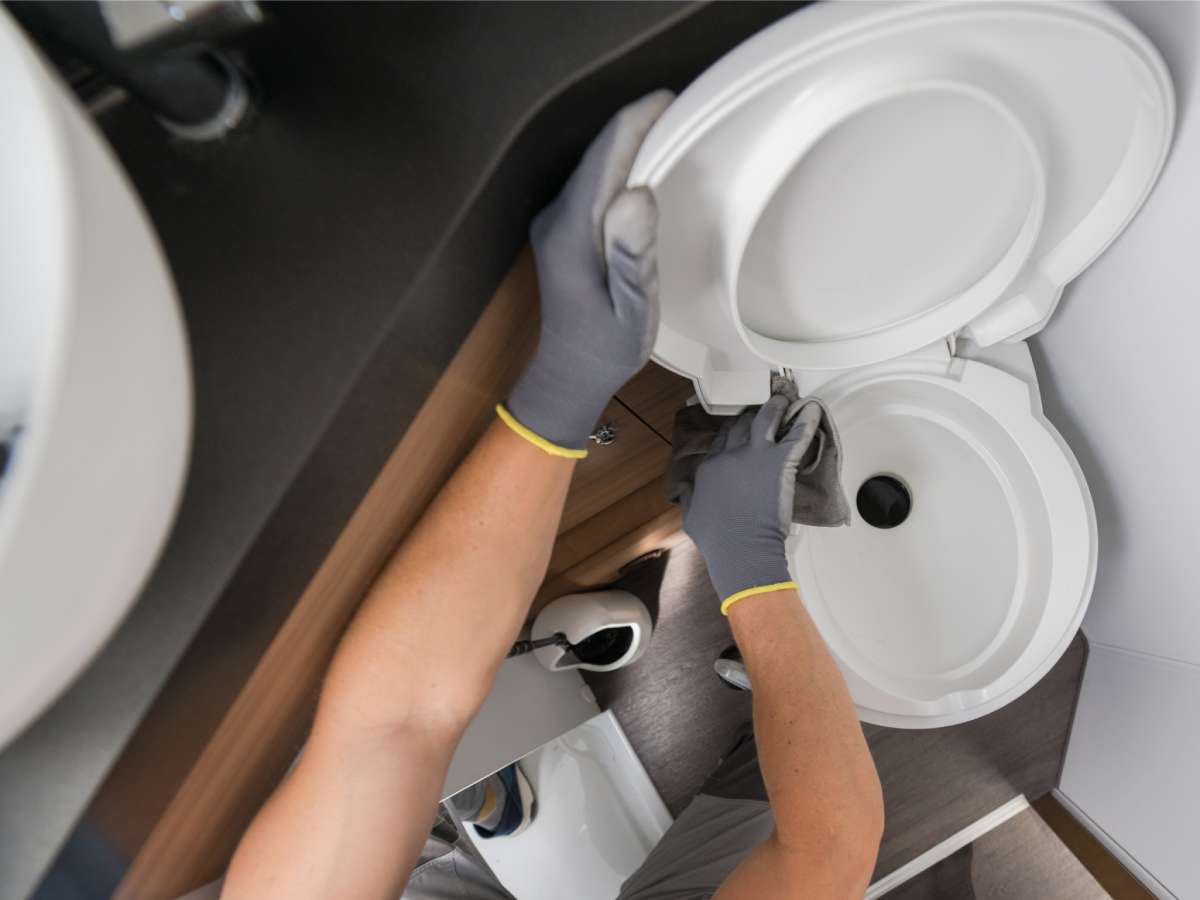The last time you went looking at new RV’s at the dealer’s lot, did you ever wonder just how all those new rigs get from the factory to the dealer?
Transporters, thousands of men and women, actually drive or tow new motorhomes and trailers across the country from their point of manufacture to the dealers who sell them.

Fleetwood, Country Coach, no matter the brand, they all must be driven (or pulled) from the factory to the dealership.
I worked for an RV transport company in Tucson for about 6 months. During that time, I transported everything from small travel trailers to $400,000 luxury motorhomes all over the country for hire.
Following are some interesting things I’ve learned firsthand about the business of transporting RVs.
If you’ve been thinking about becoming an RV transporter, there are a few things you might want to consider before you sign up to transport motorhomes or RV trailers for the first time…
Little-Known Facts About Transporting RVs

- With a wide variety of RV transport opportunities, chances are good that you can find just the right position to match up with your particular needs. Qualified careful drivers are a valuable asset to any organization. Most reputable companies will gladly work with you to ensure that your needs are well taken care of.
- When you’re transporting RVs, you can sign on to drive full time, or you might just want to earn some extra money to supplement your current income.
- Some companies only require one trip a month to maintain good status on their driver board. How much you want to be on the road, or what level of income you require is pretty much up to you.
- As a fulltime RVer, you might like to work between a couple of different terminals. It’s wise to work the southern dealerships in the winter when they are the busiest. Then, when the weather changes, move your portable home up north and haul rigs to northern dealerships all summer, avoiding the extreme heat of the south.
There are a few things to take into consideration before you head for the phone to sign up, though.
What’s Expected Of RV Transport Drivers
- You must supply your own truck and all hitch components when delivering trailers.
- Each company will have their own requirements as to what size of truck they will accept. It’s to your advantage that your rig be set up to pull any possible trailer combination — because the more types you can pull, the more loads you will get.
- Some transport drivers even purchase a gooseneck flatbed trailer so they can haul multiple smaller travel trailers all at once. Your freight is figured on each individual rig — so by hauling 2 or 3 at a time, your profit margin will increase by leaps and bounds.
- When delivering motorhomes, you’re responsible for finding your own way home. Most motorhome transporters have a small economy car with a tow bar that they use for the return trip. Again, you are responsible for all hook-up gear, as the motorhome will probably only have a 2-inch receiver.
- Usually a CDL (Commercial Drivers License) will be required for transporting motorhomes or RV trailers. You will be running under transporter tags, and will be considered the same as over-the-road trucks when it comes to paperwork and permits.
How Much Money Do RV Transporters Make?
You can expect to make reasonable money.
By that I mean what you are paid for total freight will cover all the expenses of the trip. So, as long as your return trip home is planned economically, and you don’t go crazy at restaurants, you will usually finish the trip with a reasonable profit.
Have I ever finished a same day, out-and-back with a profit after expenses of $100? Absolutely!
Although I’ve also been on the road for 3 days, to finish up with only $50 left as profit for my efforts.
Published high figures of profit might be gross income — but after expenses that you can’t get away from, the profit is dramatically reduced. I’ve never lost money on a delivery, but without watching your expenses it’s easily possible.
So, Is Transporting RVs Worth It Or Not?
All in all, I’d say that transporting RVs is a good way to travel with someone else picking up the tab. But it isn’t a way to get rich quick, or support a family. There just isn’t enough money in it, in my opinion.
Is it a good way for a person (or couple) looking to supplement an existing income while traveling the country at someone else’s expense? Absolutely. There’s nothing better than experiencing the open highway in a brand new motorhome — even if you don’t own it.



